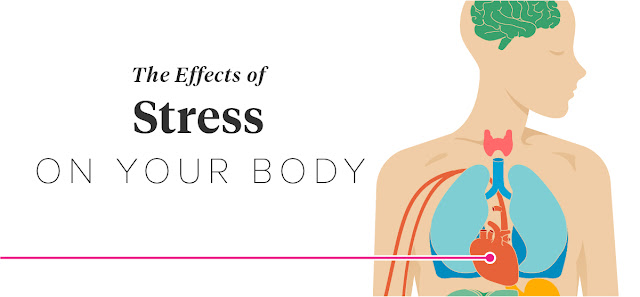How Stress Affects Your Hormones & What To Do About It
Everything about Health and Self-care!!!
------ Before joining the blog think that : ''How much do you care about yourself ? ''
How Stress Affects Your Hormones & What To Do About It
The link between sex hormones and stress hormones is complex and often misunderstood.
- Getting to the bottom of hormone-related issues can be tricky but understanding the relationship between sex and stress hormones is an important first step.
There is no doubt that most people have stressful lives fueled by crazy schedules, financial worries, problematic relationships, high-pressure work, and over-exercising to mention a few everyday complaints.
The problem for many women is that with our bodies in a constant state of physical or emotional stress, over-production of stress hormones (cortisol and adrenalin) can disrupt the healthy production of sex hormones (estrogen and progesterone) leading to increasingly common issues such as poor sleep, thinning hair, depression, anxiety, weight gain, fatigue, mood swings and difficulties conceiving.
When you encounter a perceived threat your brain sets off an ‘alarm’ system that prompts the adrenal glands, located on top of the kidneys, to release a surge of hormones including adrenaline and cortisol.
Adrenalin increases your heart rate, elevates your blood pressure and boosts energy supplies to get you out of danger. The primary stress hormone, cortisol, helps to reduce inflammation and regulate our blood pressure, glucose metabolism and insulin. It also curbs bodily functions that would be non-essential in a life-threatening situation including the digestive and reproductive systems.
Once a perceived threat has passed, hormones return to normal. But when stress is constant, the body’s fight-or-flight reaction stays turned on. Long-term stress can disrupt almost all normal body’s processes and when it comes to balancing our sex hormones it can be particularly tricky.
Progesterone is also released by the adrenals, but in stressful times these glands are so caught up releasing stress signals that it ‘forgets’ to produce progesterone. Long-term, this causes an imbalance between progesterone and estrogen levels which can lead to you feeling exhausted, moody, puffy and worse, with potentially serious implications.
Find the balance
Feeling stressed out just reading about it? Here are some everyday tips for reducing stress:
- Take a breath – nothing lowers stress hormones faster than long, deep breathing into the belly;
- Diffuse essential oils (lavender, chamomile or peppermint are great for stress);
- Aim to get 8 hours of sleep and try to stick to going to bed and waking up at the same times every day;
- Exercise with lower intensity workouts, such as Pilates, tai chi, swimming, and walking;
- Reduce caffeine, alcohol and refined sugar;
- Eat your greens at every meal – they are full of antioxidants;
- Up your healthy fats with flaxseed oil, fatty fish, avocado, nuts, seeds, and tahini;
- Eat good quality whole-grains (quinoa, buckwheat, barley, and millet);
- Consult a health practitioner about supplementation, especially magnesium;
- Soak in an Epsom salt bath; and
- Let go of negative feelings.
Madeleine Memmolo Nutritionist- Take a breath – nothing lowers stress hormones faster than long, deep breathing into the belly;
- Diffuse essential oils (lavender, chamomile or peppermint are great for stress);
- Aim to get 8 hours of sleep and try to stick to going to bed and waking up at the same times every day;
- Exercise with lower intensity workouts, such as Pilates, tai chi, swimming, and walking;
- Reduce caffeine, alcohol and refined sugar;
- Eat your greens at every meal – they are full of antioxidants;
- Up your healthy fats with flaxseed oil, fatty fish, avocado, nuts, seeds, and tahini;
- Eat good quality whole-grains (quinoa, buckwheat, barley, and millet);
- Consult a health practitioner about supplementation, especially magnesium;
- Soak in an Epsom salt bath; and
- Let go of negative feelings.








